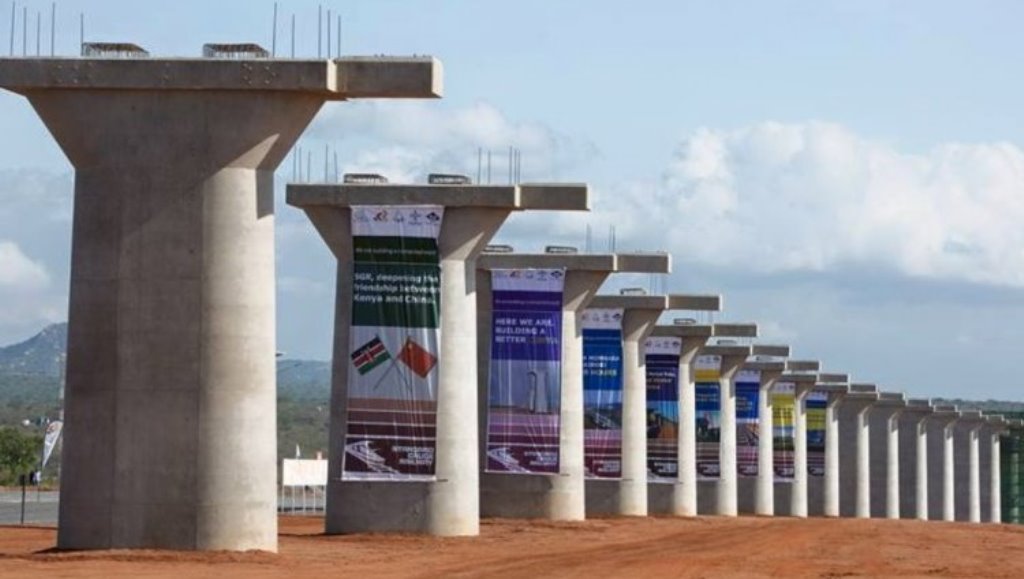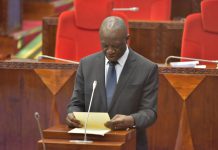AfricaPress-Tanzania: THE newly unveiled 2020/21 budget will depend on donors by less than eight percent, a historic cut on dependency on external funds in running the government.
According to a government budget presented in Dodoma by Minister for Finance and Planning, Dr Phillip Mpango, the government expects to receive 2.87tri/- only in external grants and concessional loans, which is equivalent to 8.2 per cent of the total budget presented.
However, given the fact that 2.87tri/- takes on board both external grants and concessional loans, donor dependency will be less than eight per cent of the total budget presented.
According to the breakdown, 138.32bn/- is for general budget support (GBS), 2.46 tri/- is for project loans and grants while 275.54bn/- is for basket loans and grants.
The achievement is attributed to increased domestic revenue and financial discipline in public spending of the fifth phase government under President John Magufuli.
Resolved to get rid of long donor dependency in financing its development budget, President Magufuli’s government has implemented a number of tax and revenue measures since its first budget in the 2016/17 fiscal year.
Being the last budget of President Magufuli’s first five-year tenure of office, concerted efforts will be focused on mobilising more domestic revenue and eliminating all forms of revenue leakages, measures that have paid huge dividends.
Records show donor dependency during the 2016/17 budget was 3.6tri/-, meaning that a drop in 2.87tri/- in 2020/21 budget is historic development towards zero reliance on external funds.
Between 2016/17 and 2020/21, the national budget has gone up from 29.5tri/- to 34.88tri/-, which is equivalent to 18.3 per cent rise.
The new budget shows that the government plans to collect 20.33tri/- as tax revenue compared to 15.10tri/- in the 2016/17 fiscal year, while non-tax revenue, including local government authorities’ own sources will be 3.73tri/- compared to 3.35tri/- collected in 2016/17.
With increased own financial muscles, the government has continued implementing flagship projects that have an impact on economic growth, employment creation and poverty reduction.
Some of the projects are the construction of Julius Nyerere Hydropower Plant, the construction of the new Central Standard Gauge Railway (SGR) and the revival of the national air carrier.
In the budget presented yesterday, the government plans to mobilise and spend 34.88tri/- .
Total domestic revenue, including local government agencies (LGAs)’s own sources is estimated at 24.07 tri/- equivalent to 69.0 per cent of the total budget.
Out of that amount, the government plans to collect tax revenue amounting to 20.33tri/- and 2.92tri/- as nontax revenue while revenue from LGAs’ own sources amounting to 815.0bn/-.
According to Dr Mpango, the government plans to borrow 4.90tri/- from the domestic market. Out of that amount, 3.32tri/- is for rolling over of maturing treasury bills and bonds while 1.59 tri/-, equivalent to 1.0 per cent of GDP, is new borrowing for financing development projects.
Further, 3.04tri/- is expected to be borrowed from external nonconcessional sources to speed up the implementation of infrastructure projects.
Domestic and external nonconcessional loans for 2020/21 will be 7.93tri/- which is slightly higher compared to 7.47tri/- borrowed in the 2016/17 fiscal year.
The government said in the medium-term it would continue ensuring that financing needs were met at the lowest possible cost consistent with prudent risk management, as well as supporting the development of domestic financial markets.
“A mix of concessional and semi concessional mostly from export credit agencies (ECAs) and non-concessional loans will remain the potential external sources of financing development projects particularly flagship projects,” the government said in the guidelines for the preparation of plans and budget for 2020/21.
According to the International Monetary Fund (IMF)’s report released recently after completing the 2020 Article IV Mission in the country, the Tanzania public debt at below 40 per cent of GDP is manageable.
During the reference period, revenue collection namely, tax and non-tax revenue increased to 23.25tri/- from 18.46tri/- on account of the government concerted measures that ranged from the elimination of revenue leakages to broadening tax base.







